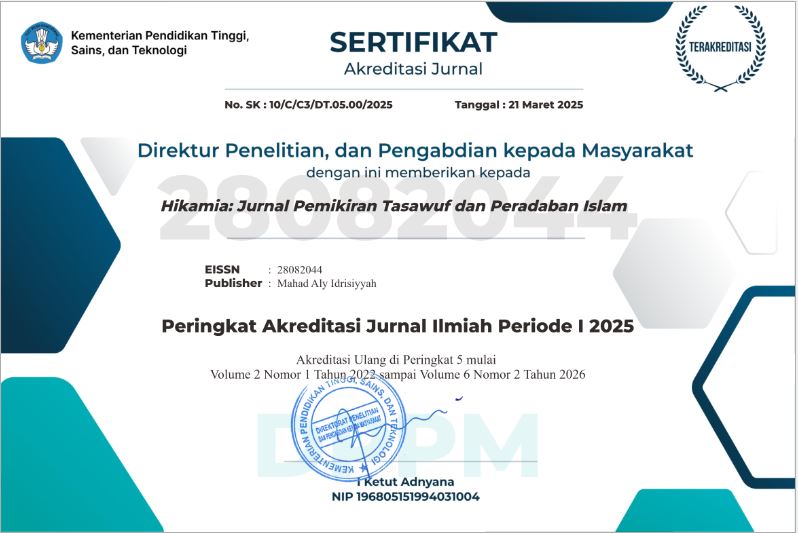Menggali Neo-Sufisme: Tradisi, Kritik Dan Relevansi Di Indonesia
DOI:
https://doi.org/10.58572/hkm.v5i1.93Keywords:
Neo-Sufism, indonesia, Characteristics, MovementsAbstract
This article discusses Neo-Sufism in Indonesia, a movement that seeks to preserve Sufi values while adapting them to the demands of modernity. Neo-Sufism in Indonesia has emerged as a response to social, political, and cultural changes that require Muslims to reconsider their spiritual practices in a more relevant context. This article explores how Sufi traditions have transformed through reformist tariqahs such as Idrisiyyah, Qadiriyah wa Naqsyabandiyah, Khalwatiyah, Tijaniyah, and Muridiyah, which demonstrate flexibility in adopting social and political roles. By examining the key concepts of Neo-Sufism and how these tariqahs maintain and reshape traditional practices, the article highlights the relevance of Neo-Sufism in contemporary Indonesian society.
The research method employed is a literature review, analyzing the concepts, characteristics, and developments of Neo-Sufism, as well as its traditions and associated critiques. The findings indicate that Neo-Sufism in Indonesia not only preserves the identity of Sufism but also serves as a driving force for social and spiritual change in the face of global challenges.
References
Arberry, Arthur J.. (2004). Sufism: An Introduction to the Mystical Tradition of Islam. Shambhala, 1997.
Nasr, Seyyed Hossein. (1998). The Heart of Islam: Enduring Values for Humanity HarperSanFrancisco.
Khan, A. M. Sufism (2000). : Its Meaning and Effect on Sufis and the General Public: Iqbal Academy Pakistan.
Tantawi, Muhammad (2005). The Teachings of Islam: A Guide to the Religious Life. Islamic Book Trust.
Al-Hujwiri, Ali ibn Uthman. (1911). Kashf al-Mahjub (The Revelation of the Hidden). Translated by R.A. Nicholson. Luzac & Co.
Nasr, Seyyed Hossein. (2006). Islamic Philosophy from Its Origin to the Present: Philosophy in the Land of Prophecy. State University of New York Press
Safi, Omid. (2008). The Politics of Knowledge in a Globalizing World, Palgrave Macmillan.
Shah, Idries. (1946). The Sufis, Anchor Books.
Qusyairi, A. A. Q. A. K. Al. (2007). لطائف الإشارات.pdf (p. 1409). دار الكتب العلمية.
Surour, T. A. B. (2012). الحسين بن منصور الحلاج - شهيد التصوف الإسلامي.pdf (p. 178). مؤسسة هنداوي للتعليم والثقافة. https://shorturl.at/nhyVp


















